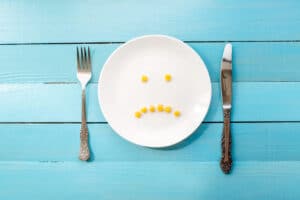Find out how this iFood project recovered 124 tons of bags instead of sending them to landfills
What happens to thermal backpacks (or bags) of iFood delivery men and women when their useful life comes to an end? They gain a new life: after being returned to a company collection point, they are transformed into new products, such as bags and fanny packs — and even fuel for the cement industry.
All this happens in I've Been Bag, iFood's reverse logistics action so that unusable thermal backpacks are disposed of correctly. Instead of going to landfills, they become part of the circular economy and are once again part of the production cycle, also generating employment and income for more people.
The material that makes up the bags It won't just end up in the trash. A portion is sent to a textile industry cooperative to be reused in new products (upcycling) and another goes to the cement industry, where it replaces petroleum coke, a fossil fuel used in the furnaces of companies in the sector.
Every month, iFood notifies its delivery partners that there will be an exchange action bags. The professionals then take the already used backpack to a collection point and receive a new one in exchange, free of charge. In this way, Já Fui Bag has already recovered 124 tons of thermal backpacks between 2020 and 2021.
“Until 2019 we did not have an organized process for correctly disposing of backpacks”, recognizes Alexandre Lima, sustainability manager at iFood. “We had an environmental challenge: giving the correct destination to an object that bears our brand”.
100% of recovered bags
Já Fui Bag is a project carried out in partnership with startup Brazilian GreenPlat, responsible for structuring collection logistics and environmentally correct disposal of backpacks, and with Shred, which transforms the bags in new products. “It is very symbolic to transform the bag into something new. Especially because, generally, it is a material that is not recyclable”, explains Jonas Lessa, CEO of Retalhar.
To the bags can become sustainable bags, first aid kits, bags (bag with a short strap), fanny packs and big bags (used in recycled materials cooperatives). Since the beginning of the project, more than 8,400 products have been created using the material from iFood's thermal backpacks.
Remanufacturing is carried out by a cooperative partner of Retalhar. This is where the social aspect of the project comes in, which employs people in vulnerable situations (residents of the outskirts of São Paulo or those released from the prison system) throughout the entire process of upcycling: handling, preparing and separating the bags, in addition to the sewing itself. According to Retalhar, in 2021 an income of R$ 74.6 thousand was generated for workers in vulnerable situations.
As for the environmental impact, around 827 m³ of solid waste from bags they were reused instead of ending up in landfills — space equivalent to that occupied by 92 popular cars. Furthermore, 66 tons of petroleum coke were no longer burned in the cement industry, reducing carbon dioxide emissions.
For Gabriela Bueno, project coordinator at GreenPlat, this type of reverse logistics project encourages the green economy. “With this operation present throughout the country, we encourage the existence of certified companies that have all the licenses required by law”, he says.
A new, more sustainable bag
Now, Já Fui Bag's next step is to redesign the thermal backpack so that a greater amount of its material can be turned into new products. Currently, 3.6% of the 124 tons of backpacks recovered by the project have been transformed into a new product, the majority of which ends up in the cement industry. “Our challenge is to return the material to the production chain and make the product more efficient so as not to have so much loss in the process”, says Alexandre.
Discussions about a new bag they take into account both changes in format and size (since iFood also carries out market deliveries) and the raw material for creating its cover. “The discussion involves implementing sustainability situations, whether with a more environmentally friendly product or one that can return to the production chain. It is a challenge, as it needs to be comfortable and useful for the delivery person and also have a concept of sustainability”, says Lima.
The new life of iFood bags
124 tons
of backpacks were recovered instead of going to landfill (between 2020 and 2021)
115 tons
became a source of energy for the cement industry
4.5 tons
were remanufactured and became new products
8.400
products can be made from the cover of bags, such as bags, pencil case, bag and fanny packs
R$ 143.5 thousand
income was generated in the project for workers in vulnerable situations


